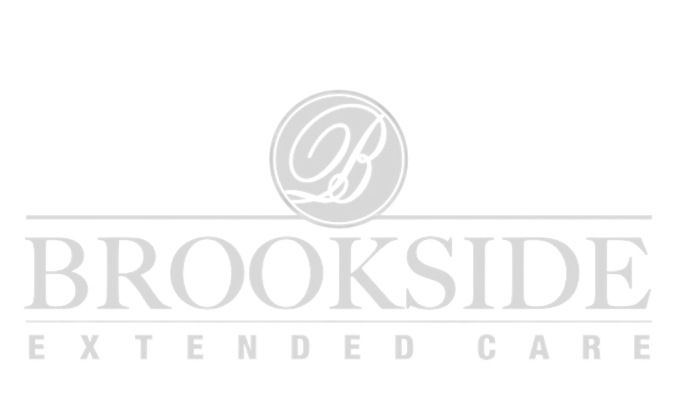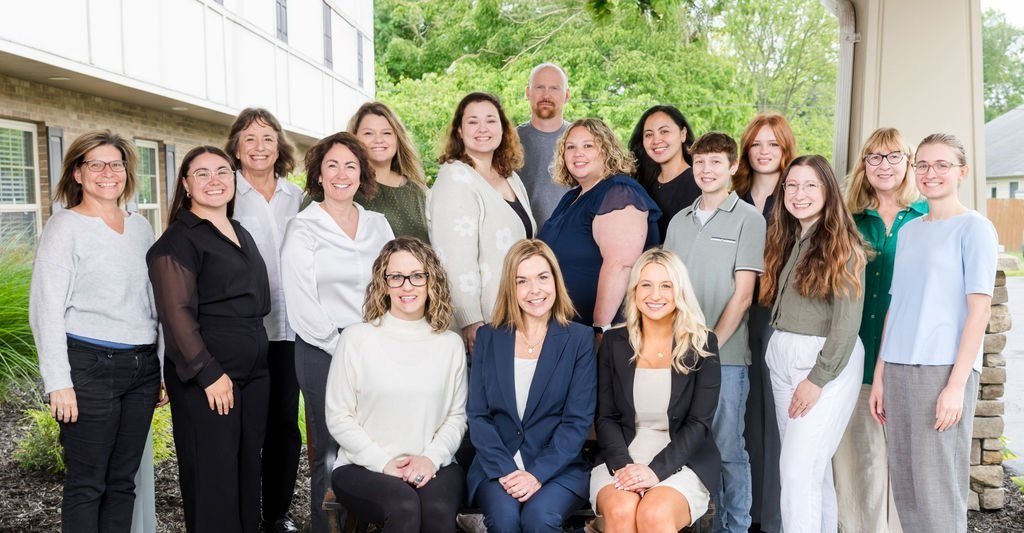Choosing care for someone you love is never easy. It often comes after a lot of thought and worry about what is best. At Brookside, we understand how heavy that decision can feel. Families want to know their loved one will be cared for by people who pay attention, who notice the small things, and who treat them with patience and respect. That is what matters most to us here. From the first conversation to the day they move in, we work to make the process calm, steady, and filled with understanding.
Ready When You Are.
FAQs
-
Brookside serves both children and adults who have severe to profound developmental and intellectual disabilities and require total hands-on care. Most residents are non-verbal and non-ambulatory, needing complete assistance with mobility, communication, feeding, and personal care. Many depend on adaptive equipment such as wheelchairs, standers, or positioning devices and receive close medical monitoring throughout the day. Brookside is designed for individuals with complex medical conditions that require 24/7 licensed nursing care. Common medical support includes G-tubes and G/J-tubes for feeding, tracheostomies, oxygen, seizure management, and specialized respiratory care. Many residents have multiple diagnoses, including cerebral palsy, anoxic or traumatic brain injuries, seizure disorders, congenital anomalies, or other neurological conditions that impact movement, cognition, and daily functioning.
-
Brookside accepts traditional Medicaid through Aged, Blind, Disabled (ABD) or Long Term Care (LTC) programs. Managed care plans such as CareSource, Molina, or Buckeye are not accepted at our facility. If your loved one is currently enrolled in a managed care plan or does not yet have Medicaid in place, that is completely okay. Our team will walk you through the process to make sure the correct Medicaid coverage is in place before admission.
-
While Brookside provides a high level of medical and personal care, there are certain needs we are not equipped to safely support. We can accept individuals who are ambulatory, but we are not an appropriate setting for individuals who are mobile and demonstrate complex behavioral challenges such as frequent aggression, property destruction, or elopement. Medically, we are unable to accept individuals who require ventilator-level care. This includes those who use both a tracheostomy and a BiPAP, as that combination is considered ventilator-level support. We are also unable to accept individuals who require nasogastric (NG) tube feedings.
-
The admission process begins when a referral or inquiry is received by our Admissions Director, Madison Lindeman. Each referral is reviewed individually to determine whether Brookside can meet the person’s medical, behavioral, and daily care needs. Basic information is gathered such as age, diagnosis, current health status, reason for placement, and funding source to assess initial eligibility. If the individual appears to meet the criteria, we request additional documentation to complete the review. This may include recent physician orders, medication lists, therapy notes, and copies of the current OISP or IEP. For children, school and therapy information helps us coordinate with their educational teams and related service providers. Once the review is complete, we contact the guardian or referral source to discuss next steps, which may include scheduling a tour, obtaining consent paperwork, or preparing for admission.
Madison.Lindeman@brookside-care.net
-
Individuals who currently receive waiver services can still be referred to Brookside. However, waiver and ICF funding cannot be used at the same time. If we determine that the individual is appropriate for admission, their waiver will need to be closed or placed on hold before ICF Medicaid coverage can begin. This is a common part of the process, and we work closely with the county board and guardian to make sure the transition is handled correctly. Our team can help coordinate timelines, explain what to expect, and make sure there are no gaps in coverage during the change. Once the waiver is closed, the ICF Medicaid funding will take over as the primary payer source for the individual’s care at Brookside.
-
Brookside does not hold beds without a confirmed admission plan in place. If an individual is approved, we will work with the guardian or referral source to coordinate a realistic admission timeline. We understand that delays can happen with funding or documentation, and we will do our best to be flexible. However, a bed cannot be reserved indefinitely without a clear path forward.
-
If it’s determined that Brookside cannot safely meet an individual’s medical or behavioral needs, we don’t end the process there. Our goal is to help each family or referral source find the most appropriate placement possible. When a referral doesn’t align with Brookside’s level of care, our admissions director works directly with the county board, service and support administrator (SSA), or guardian to share recommendations and connect them with other ICFs or providers that better match the person’s needs. Because we oversee admissions across several affiliated ICFs, we’re often able to identify settings with different levels of medical or behavioral support, such as those designed for individuals who are more medically stable or those who require enhanced behavioral programming. We believe every person deserves a placement that fits their unique care needs, and we’re committed to helping families navigate that process with honesty and respect.
-
Transportation for admission is typically arranged by the guardian, family, or current provider, depending on the individual’s living situation. However, we understand that not every family or agency has access to medical transport, and we are happy to assist with coordination when needed. If the individual requires specialized transportation due to medical equipment or mobility needs, we can work with hospital discharge planners to arrange safe transfer. Our goal is to make the admission process as smooth as possible, and we will work with you to make sure transportation is handled with care and proper support.
-
No, they don’t need to be actively enrolled to begin the admission process. However, they do need to be eligible for services, which means we’ll need documentation of a qualifying diagnosis. If they’re not currently enrolled, we can help get you connected.
Preparing for admission can feel like a lot, we understand. Whether you’re a guardian or a caseworker, this guide is here to help make the transition easier. On the right, you’ll find a list of what is needed on the day of admission, including required documents and personal items. During intake and throughout a residents time with us, our team assists with labeling clothing, medical equipment, bedding, and other personal items to ensure nothing gets misplaced.
What to Bring at Admission
Required Documents:
Birth Certificate (copy)
Social Security Card (copy)
Guardianship paperwork or custody documentation
Photo ID of guardian
Personal Belongings:
A set of clothing, including both summer and winter items (Brookside does not provide daily wardrobes, emergency clothing can be provided if necessary).
A backpack or wheelchair bag (helpful for day program or school attendance).
Any specialized medical or adaptive equipment.
Favorite item(s) from home (plush toy, pillow, sensory item).
Optional: personal decor (photos, posters, bedding) to help make the room feel more like home.
Families or guardians are responsible for providing a television for their loved one.
Need help?
If you’re unsure about anything, don’t worry. We will walk you through the process every step of the way. You’re not expected to have it all figured out, let us support you.
Schedule a Tour
Come see what makes Brookside so special. Fill out the form below to request a tour—we’d love to meet you and show you around.

